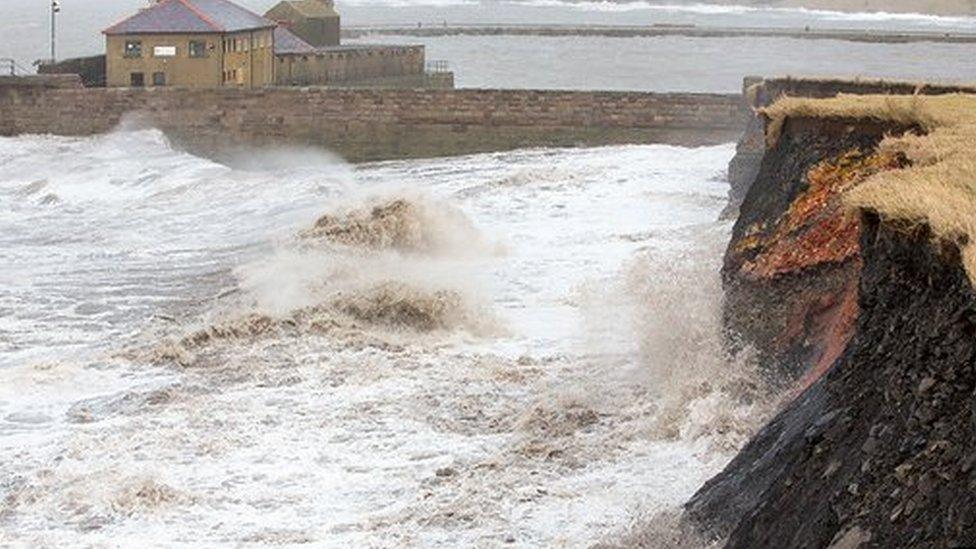Rising seas will swamp homes, report says
- Published

More UK homes will be at flood risk in the future
England’s coastal communities haven’t faced up to the reality of rising seas through climate change, a report says.
An increase of at least 1m is almost certain at some point in the future, the government’s advisors predict.
The Committee on Climate Change (CCC) warns this huge rise may happen over the next 80 years - within the lifetimes of today's children.
A government spokesman said the public would be protected from the impacts of climate change.
But the CCC says current shoreline management plans are unfunded and hopelessly optimistic.
It estimates that by the 2080s, up to 1.2 million homes may be at increased risk from coastal floods.
Will more people have to abandon their homes in future?
The CCC’s chief executive, Chris Stark, told BBC News: “People know sea level is going to rise – but they haven’t grasped how bad this could be for them.”
His colleague Professor Julia King added: “We’ve got to wake up to the fact that we’ve got some very difficult challenges ahead.
“We need local councils to have some honest discussions with people to help them prepare for the difficult choices they’ll face.”
The report says many coastal communities are particularly vulnerable because populations in coastal areas are often poorer and older than the UK average.
It highlights the issue of land-slips on the coast. It says 100,000 cliff-top properties could be at risk from coastal landsliding, but the public don’t have clear and accurate information about the issues and there’s no insurance or compensation for people who lose their homes.
Is it just homes that are under threat?
No, it’s much wider than that. Transport, energy and waste infrastructure are also exposed to coastal flooding and erosion.
Approximately 7,500km of road, 520km of railway line, 205,000 hectares of good farm land, and 3,400ha of potentially toxic historic landfill sites are currently at 0.1% or greater risk of coastal flooding in any given year.
Power plants, ports, gas terminals and other significant assets are also at risk. The report says the government needs to focus on protecting these assets, as well as saving people’s homes.
What’s more, coastal defences are likely to be at risk of failure as sea levels rise. A rise of 0.5m is projected to make a further 20% of England's coastal defences vulnerable to failure. The risk will be even higher if the current rates of deterioration of saltmarshes, shingle beaches and sand dunes continue.
Some more key facts
In England, 520,000 properties (including 370,000 homes) are in areas with a 0.5% or greater annual risk from coastal flooding.
By the 2080s, that figure could rise to 1.5 million properties (including 1.2 million homes). In addition, approximately 1,600km of major roads, 650km of railway line, 92 railway stations and 55 historic landfill sites are at risk of coastal flooding or erosion by the end of the century.
A government spokesperson said: "The government has already committed £1.2bn of investment in coastal erosion and sea flooding projects over the next six years to better protect 170,000 homes.
"We welcome the committee's report which will inform our work to tackle increasing flood and coastal erosion risks, ahead of the publication of our Government Policy Statement on flooding and coastal erosion next year."